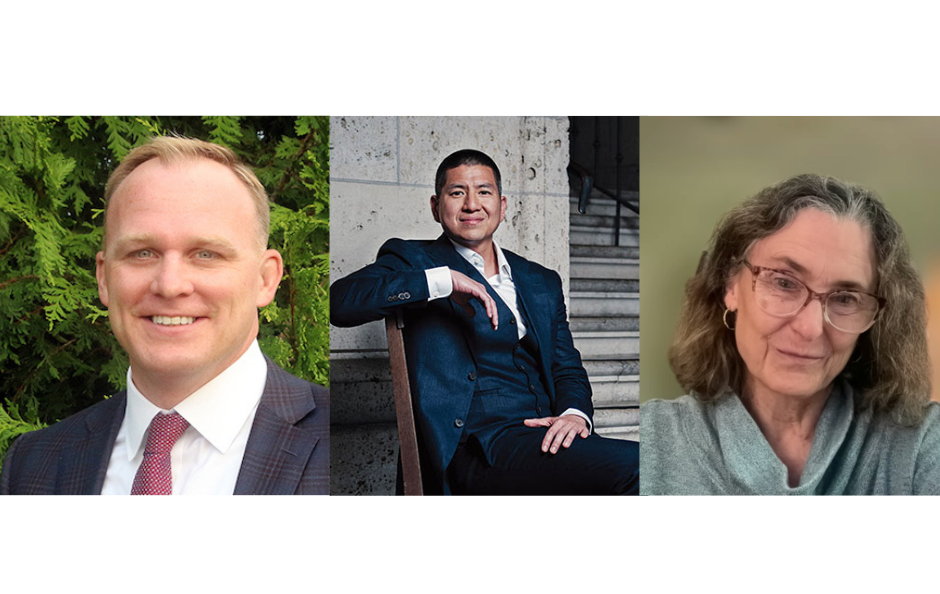On February 16 of this year, two distinct voices from different academic disciplines and different positions on the political spectrum met for a moderated dialogue about how they define freedom. The respondents were Eric Tang and Justin Dyer, and the conversation was moderated by Lorraine Pangle. Tang is an associate professor of African and African Diaspora Studies and director of the Center for Asian American Studies, Dyer is a professor of government and executive director of the Civitas Institute, and Pangle is a professor of government and co-director of the Thomas Jefferson Center for the Study of Core Texts and Ideas. More than 40 students, faculty and staff participated in the discussion.
Their conversation centered on questions related to the relationship between freedom and responsibility; what the requirements of freedom are for individuals and societies; the ideas of liberty and liberalism and their relative degrees of distinction from the idea of freedom; and what legendary crooner Nina Simone meant with the lyrics of her song, “I Wish I Knew How it Would Feel to Be Free.”
The respondents, who hail from contrasting and sometimes divergent academic backgrounds, agreed on the importance of a common ground on which to discuss their differences, especially on a topic like freedom. “However one defines freedom, one can’t get around the fact that it requires relations,” said Eric Tang. “we need each other to know what it is. My freedom cannot be known to me unless its meaning and value is understood or misunderstood by another, and vice versa. Freedom calls for conversation. In this spirit, I was glad to be part of this generative conversation hosted by the College of Liberal Arts.”
They agreed that conversation itself can be uniting, while allowing its participants the freedom of their discrete opinions: “Human beings long for freedom, but we have different ideas of what true freedom is, what it requires, and how it is maintained,” said Dyer. “These are exactly the kinds of conversations that should take place at a university, where scholars from different disciplines and with different perspectives can unite around a common intellectual endeavor. Sometimes we forget this, and that is one reason why this dialogue series is so valuable.”
The event was part of the College’s Open Forum Dialogue Series — established this year by its Office of Public Affairs — which aims to put faculty members from different disciplines in conversation with one another over shared topics of interest. The goal is to inform faculty members of one another’s work, to spark potential research and teaching collaborations that might not otherwise present themselves, and to demonstrate to students the value of open-ended academic discourse between people with different perspectives.
“Open Forum Dialogues foster cross-disciplinary exploration in the most academic sense—which students can witness and partake in—to create a collegial, robust culture of creative academic discourse at COLA,” said Ann Huff Stevens, dean of the College of Liberal Arts. “We’re looking forward to continuing the conversations each semester with new topics, so stay tuned.”
To suggest topics for future conversations, COLA community members should reach out to Leora Visotzky: leora@austin.utexas.edu.
